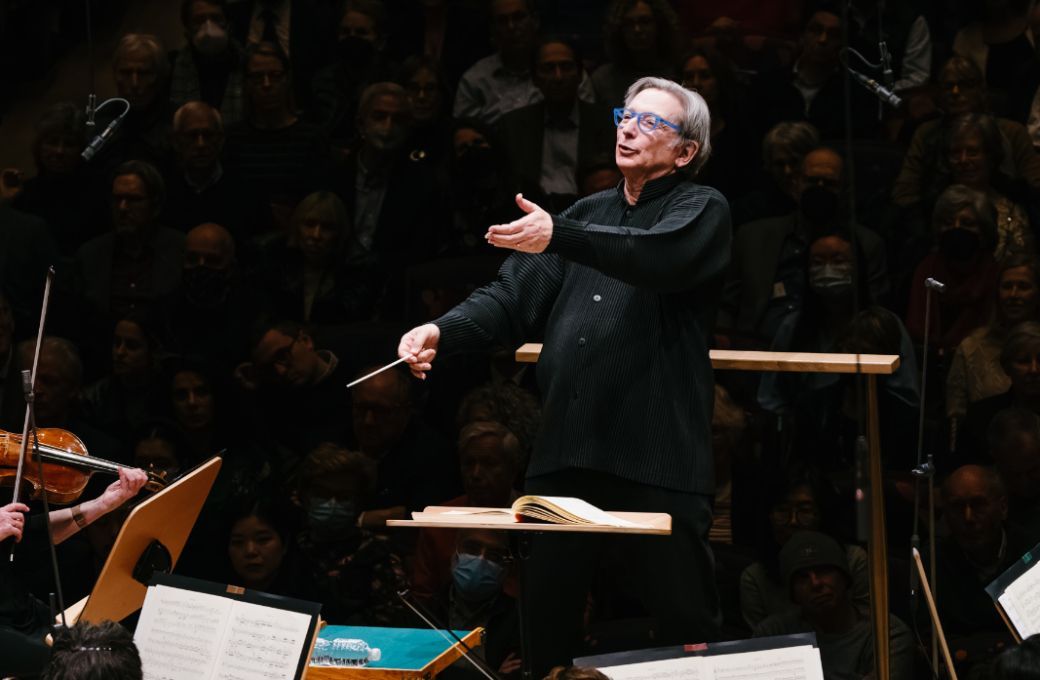Michael Tilson Thomas has earned the right to a little self-indulgence. If he wants to speak off-the-cuff for 15 minutes to introduce his 2019 song cycle Meditations on Rilke, heard here in its New York premiere, I for one do not begrudge him the opportunity.

That he felt the anecdotes about the piece’s origins in his family’s musical culture and imagination were necessary, however, speaks to a certain self-indulgence in the piece as well. The opening piano solo, written to sound like a saloon piano and played here on an upright, dissolves into orchestral evocations of Mahler and then Berg before settling into a conservatively contemporary sonic palette. This would indeed have been pretty mystifying without the explanations, as would the appearance of music referencing “cowboy songs” in a setting of German texts about impermanence.
That said, the piece itself is appealing, with a constantly-evolving array of textures and colors, including expansive horn and trumpet solos, galloping string figures and the occasional dry comment from the contrabassoon. Except for a few passages, there were effective portrayals of mood, rather than musical logic or compelling text setting. Bass-baritone Dashon Burton and mezzo-soprano Sasha Cooke alternated songs, with one duet. While both were excellent, Cooke seemed better suited to this material, with a knife-like edge to her voice that focused the orchestra behind her. Burton’s buttery sound was often swallowed by some of the thicker textures, especially in his lower range.
There was nothing self-indulgent about Tilson Thomas and the Philharmonic’s rendition of Schubert’s Symphony in C major though. It was taut, well-paced and clear in texture and intent. The violins at louder dynamic levels had a slightly rough, grainy sound here that I absolutely loved, transmuting to a dark, silky tone at lower volumes. The Allegro non troppo in the first movement felt conversational, almost like chamber music, both between the various parts of the orchestra and the sections of the movement. The second movement can sometimes feel like an endless slog, but bright yet unhurried tempos both here and in the introduction to the first movement instead evoked a purposeful directionality. Liang Wang’s oboe solos were immaculate.
The dancing violin melodies in the Scherzo thus seemed more lyrical by contrast. While Tilson Thomas couldn’t quite disguise the fact that this movement is simply too long, the Trio had its own character as a genial drinking song. I was perfectly happy to wait through the recap of the Scherzo to get to the Finale, straightforwardly exuberant and celebratory.
Tilson Thomas interrupted his own applause for the Schubert to redirect it towards the “athleticism” of the string section. It was a charming gesture.


